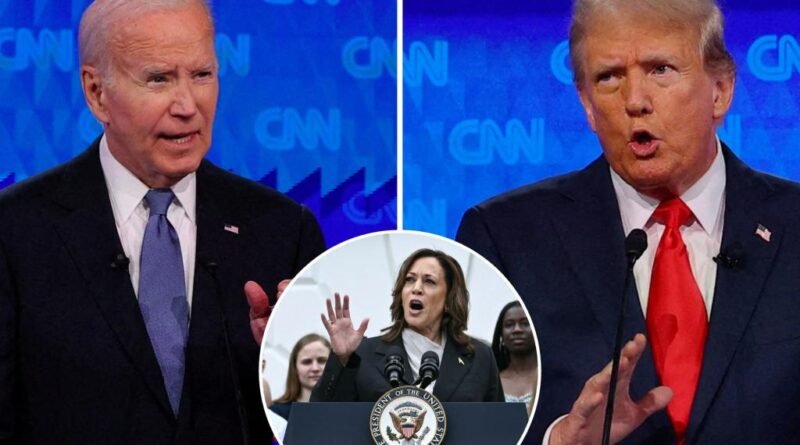Blame our shattered political parties for presenting candidates that disappoint so many of us
The Democrats took a long time to replace Joe Biden on their presidential ticket, despite his unpopularity and declining abilities to make a strong case for himself.
Leading up to his exit from the race, Biden never had a polling lead over Donald Trump and frequently had job approval ratings below 40%.
The delay in challenging him in the primaries and the denial from party elites about his prospects raised questions about why a more electable candidate wasn’t selected sooner.
The same could be asked of the Republicans, who chose to run Donald Trump again despite his unpopularity and lack of broad appeal. Both parties have been plagued by a lack of institutional professionalism in candidate selection and appeal to a wider audience.

The weakening of the parties has led to a circus of performative outrage in election cycles, leaving Americans exhausted and cynical about the political landscape.
The lack of strong parties has also contributed to vicious polarization in our political system, as there is no longer a majority party and elections are increasingly close without yielding a durable majority.
Efforts to reverse the damage to the parties could involve reforms to the primary system, giving elected officials and political professionals a formal role in candidate selection, and channeling more campaign money through the parties rather than independent groups.
Recognizing the need for functional political parties is essential before any meaningful reforms can be implemented to improve the state of politics in the country.
Despite the challenges faced, the hope is that this election year will serve as a lesson about the importance of strong political parties in maintaining a healthy and effective democracy.
Yuval Levin is a senior fellow at the American Enterprise Institute. His latest book, “American Covenant: How the Constitution unified our nation — and could again,” is now out.



